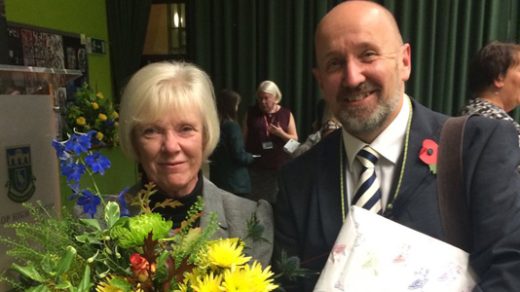Less than three in ten young people enjoy writing in their free time – literacy charity demands action

Children and young people’s enjoyment of writing and daily writing habits are at crisis point, according to new research published today by the National Literacy Trust.
A survey of more than 76,000 UK children and young people revealed that fewer than three in ten (28.7 per cent) of 8 to 18-year-olds say they enjoy writing in their free time – the lowest level recorded by the charity since it first started surveying children about their writing in 2010.
1 in 9 (11.1 per cent) say they write daily in their free time, halving in the past 12 months (19.3 per cent in 2023); while 1 in 3 (35.7 per cent) say they rarely or never write in their free time, a troubling increase of 55 per cent (12.7 percentage points) in the same period.
Children’s enjoyment of writing and daily writing habits peak when they start primary school but steadily decline until they leave secondary school; three times as many children aged five to eight than those aged 14 to 16 say they enjoy writing (66.7 per cent vs 21.8 per cent).
Five times as many say they write something daily in their free time (41.9 per cent vs 8.3 per cent). Meanwhile, more girls than boys enjoy writing (34.6 per cent vs 22.1 per cent) and write daily (13.3 per cent vs 8.6 per cent).
There were also regional differences in children and young people’s enjoyment of writing and daily writing in their free time depending on where in England they went to school.
While all regions saw significant year-on-year declines, more children who go to school in the North East, West Midlands, Yorkshire and the Humber and Greater London enjoyed writing in their free time, with similar trends for daily writing; while children who go to school in the South East were the least likely to enjoy writing and do it daily in their free time.
The National Literacy Trust said young people’s writing skills are a cause for concern. Last year, 29 per cent of 11-year-olds left primary school without the writing skills expected for their age, while a third of 16-year-olds did not achieve a grade 4 or above in English and maths GCSEs; with those from disadvantaged backgrounds worse affected.
When children and young people enjoy writing and write daily in their free time, their writing skills, critical thinking skills, confidence, creativity and wellbeing benefit.
Children and young people who write at least once a month in their spare time said the process of writing promotes creativity (59.1 per cent) and helps them express their ideas and imagination (52.8 per cent) and their thoughts and feelings (47.7 per cent).
Writing also helps to support wellbeing, with many writing to relax (40.4 per cent) and because it makes them happy (33.1 per cent), while a third (36.2 per cent) saw a link between writing and getting a better job when they grow up.
While children’s enjoyment of writing at home is in sharp decline, the opposite is true for their enjoyment of writing at school. More than half of children and young people (53.6 per cent) say they enjoy writing at school, a 22 per cent (9.7 percentage points) uplift in just the past year.
Furthermore, providing opportunities for children and young people to feel inspired to write at school was found to be linked to their enjoyment and frequency of writing in their free time.
Twice as many young people who took part in a creative writing group, storyteller visit, book group or writing competition in school last year said that they enjoy writing in their free time and write daily compared to their peers who did not take part in those activities.
Finally, the research found that more children and young people who receive free school meals said they enjoyed writing in their free time than their peers (34.2 per cent vs 26.1 per cent) and wrote daily outside school (14.8 per cent vs 9.5 per cent); more children on free school meals also enjoyed writing at school than their peers (57.3 per cent vs 51.5 per cent) and, crucially, were motivated to write in their free time to support their mental wellbeing and foster social connections.
Recognising the vital role teachers and schools can play in helping young people discover a love of writing, and the support they need to do so, the National Literacy Trust is urging the Department for Education’s forthcoming (post the general election) writing framework to reflect the importance of writing for enjoyment for children’s cognitive, social and emotional development; in much the same way that its updated reading framework now includes the importance of developing a reading for pleasure culture.
Jonathan Douglas CBE, Chief Executive of the National Literacy Trust, said: “It is now time to provide children and young people with more meaningful opportunities, both in and out of school, to reconnect with the creative elements of writing which transform it into an enjoyable activity that allows for self-expression and that works as a tool to process struggles, make sense of the world and participate actively in civic life.”
Award-winning children’s author, Malorie Blackman OBE, added: “The findings are a definite cause for concern. The writing of stories, poems, journals and diaries allows for reflection, expression, innovation and imagination, all of which are stepping stones to improving creativity as well as mental wellbeing. I hope the report is used as the spur to further engender and encourage a love of writing for pleasure.”
Sarah Hannafin, head of policy at school leaders’ union NAHT, said: “The current curriculum and assessment system is part of the problem when it comes to children’s enjoyment of writing.
“When we surveyed school leaders on the primary statutory assessment system earlier this year, they criticised the Key Stage 2 writing framework for focusing too much on the technical aspects of writing.
“School leaders told us writing to a checklist strips out ‘the importance of flair and imagination’ and only 8 per cent of our members agreed the framework teaches children to be creative and compelling writers.”




